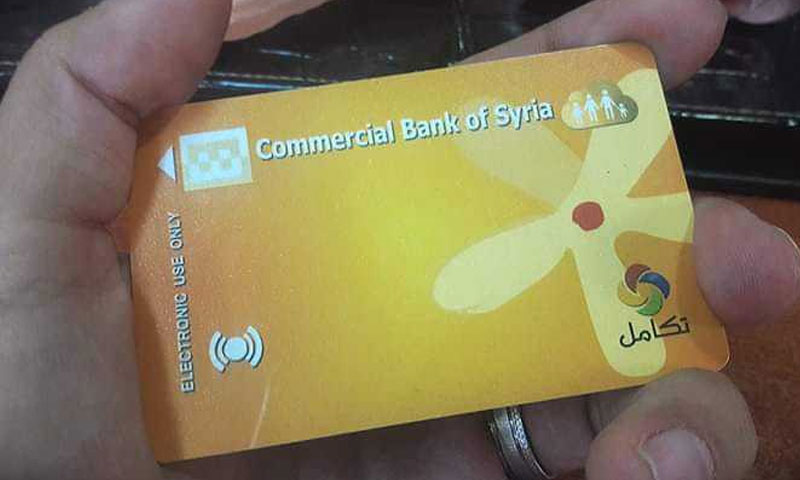



Swaida witnessed a transport crisis last week due to errors in the smart cards issued by the Takamol company and designated for public transport drivers. The error hindered transportation in a period that most affected middle and high school students who are in dire need of mobility, and also adversely impacted drivers’ livelihoods.
In a first-ever incidents of its kind, text messages were sent to a large number of citizens informing them that their smart transportation cards had broken down, and urging them to refer to the company with their necessary papers to resolve the problem. After some contacted the company, they were informed that the message had been sent by mistake, while many others saw their cards rendered ineffective without prior warning or information.
The majority of those whose cards stopped working are drivers in the public transport sector, whose work was obstructed without any means of addressing the error.
Enab Baladi had several interviews with drivers, who said that they checked with Takamol in Sweida, and some even went to the company in Damascus, only to be informed that their cards are working. Instead, they were referred to the Fuel Establishment, which in turn denied any malfunction on its side, as the dilemma between the two institutions remains unresolved.
The majority of drivers complained about the disruption of their work, and their preoccupation with the procedures of reactivating the card. This was especially difficult since all problem reporting takes place in one office located in Qanawat in the center of the city of Suwaida. The review process cost people the trouble of being in a queue for a period that may take a day or two, and then spending another two or three days between government departments to complete forms that were previously requested of them before obtaining the card, without specifying reasons for their re-application.
One of those affected said to Enab Baladi that the company told him that it sent his request by fax to Damascus, to inquire about the reason for the suspension of his card. For the fax to arrive and a response be made, this requires a minimum of ten days, which would disrupt his work enough to threaten him and his family with starvation, according to his description.
On the other hand, a student sitting for the high school diploma tests said that she was unaware of the crisis and had to wait for a bus for a long time, and only made it to her exam 30 minutes late after having to get a taxi for 500 SYP. She says this increased her stress and caused her immense loss of time, and forced to beg the observers to allow her into the test hall.
The student was unable to answer test questions well, which may force her to redo the entire school year, especially as she is an outstanding student and was planning not to allow any lost grade stand in the way of her future.
One of the employees at Takamol, who requested to remain anonymous, told Enab Baladi that the employees also did not know the reason for these procedures. However, he stressed that it is not in the interest of the company to undermine citizens’ trust, or take on a workload beyond its capacity for no good reason.
The employee added that the company is state-owned, and that the government must be aware of the reasons that have disrupted the lives of citizens and increased pressure on employees. The company’s workers receive dozens of complainants daily from people with malfunctioning cards, in addition to those who cannot obtain their card due to their lack of a family papers, especially those whose marriages were not registered in the court.
According to the company’ official website, its work aims to control the distribution of oil derivatives and reduce smuggling and monopolies, and ensure equal access to oil derivatives by the beneficiaries and achieve fairness in the distribution of subsidies. The smart card project came after the regime failed to provide the fuel needs of the population, especially with mounting US and EU sanctions.
The employee confirmed to Enab Baladi that this measure has restricted corruption and smuggling to influential figures at high levels, while curbing corruption only targeted small-time smugglers, most of whom are starving citizens.
An activist who preferred to remain anonymous, told Enab Baladi that discussion among people mainly revolves around the regime’s interest in such a move. The regime’s goal, he claimed, was to get people preoccupied with securing their daily needs rather than the national issues in the country.
The activist indicated that the malfunction of the card drove people to resort to buying from the black market, whose returns ultimately benefit the regime and businessmen close to it, after monopolizing fuel through what was described as the reduction of smuggling when the card project was first launched.
The activist wondered how long the government will continue to occupy people by undermining their livelihoods and preventing them from participating in the cause of their country, whose collapse and economic and social oppression has become as clear as day, he said.
if you think the article contain wrong information or you have additional details Send Correction